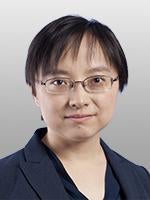China has set out on an ambitious agenda of aiming to become the world leader in artificial intelligence by 2030. Policy experiments for a critical part of China’s AI development strategy, and to that end multiple government think tanks have set out formulating standards that may impact AI innovation in China.
The China Electronics Standardization Institute (“CESI”), the major think tank responsible for standardization work under the Ministry of Industry and Information Technology (“MIIT”), is one of the key players in AI standardization in China. On January 24, 2018, CESI released the Artificial Intelligence Standardization Whitepaper, which summarizes current developments in AI technology, standardization processes in other countries, China’s AI standardization framework and China’s plan for developing AI capabilities going forward.
Since the release of that whitepaper, CESI continued its standardization work on two parallel tracks. As the lead agency for China, CESI has been actively engaged in developing international standards. It is an active member of the ISO/IEC JTC 1/SC 42 subcommittee that develops international standards for the AI industry.
To both support CESI’s international standard-setting work and to develop China’s domestic AI standardization framework, CESI has established three working groups: one working group aiming to produce guidelines for establishing the AI standardization system in China, one working group focusing on AI and open source, and another on AI and social ethics. The three working groups are due to produce papers that will guide China’s standardization efforts in the years to come by the end of this year. CESI aims to leverage China’s domestic standardization work in the development of international standards, while at the same time to learn from international stakeholders when formulating its own standards.
Some of the national AI standards led by CESI have already been finalized, such as Specification of Programming Interfaces for Chinese Speech Recognition Internet Services. More standards are under development or slated for development in the near future. These standards cover the categories of testing and evaluation, AI platforms, edge intelligent computing and chip, machine learning, computer vision, human-machine interaction, augmented reality, virtual reality, robotics, smart home, intelligent medicine and AI security.
In parallel, other government think tanks are also moving forward on developing industry standards for AI. The Artificial Intelligence Industry Alliance (AIIA), an industry alliance established by China’s regulators with about 200 members, is seeking to develop industry standards on assessment and certification industry systems for AI products and services. These standards will set out requirements and testing methods for AI hardware and AI platforms for services based on voice, language and images.
Interested stakeholders may wish to closely follow progress being made by CESI, AIIA, and other agencies.
Many thanks to Zhijing Yu and Runze Li for their contributions to this post.






 />i
/>i
